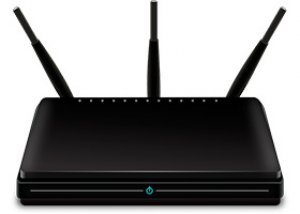
All iLive content is medically reviewed or fact checked to ensure as much factual accuracy as possible.
We have strict sourcing guidelines and only link to reputable media sites, academic research institutions and, whenever possible, medically peer reviewed studies. Note that the numbers in parentheses ([1], [2], etc.) are clickable links to these studies.
If you feel that any of our content is inaccurate, out-of-date, or otherwise questionable, please select it and press Ctrl + Enter.
Wi-Fi router may endanger human health
Last reviewed: 02.07.2025
 ">
">Today, the vast majority of people cannot imagine their lives without the Internet. As a rule, many houses and apartments have special routers, or Wi-Fi routers, that distribute access to the Internet. However, scientists are sounding the alarm: such a “distributor” can pose a danger to human health – at least six variants of the router’s negative effect are already known.
- Wi-Fi is bad for testicular DNA. In 2016, the journal Chemical Neuroanatomy published a study in which scientists studied the effects of radiofrequency radiation from a router on rodents. It was found that the radiation had relatively little effect on organs other than the testicles. As it turns out, the testicles are highly sensitive to radiofrequency waves.
- Wi-Fi increases oxidative stress in the body. In the same 2016, the same journal published another conclusion by scientists: prolonged exposure to electromagnetic waves from a router increases the content of reactive oxygen-containing substances and reduces the antioxidant protection of the human body. As a result, oxidative damage to brain and liver structures develops over time.
- Wi-Fi causes intrauterine kidney developmental disorders in the unborn child. In 2004, the journal Bioelectromagnetics published the results of a study according to which Wi-Fi waves led to a delay in the formation of kidney organs in newborn rodents.
- Wi-Fi impairs sperm motility. The journal Fertility and Sterility published information five years ago that waves from a router adversely affect sperm motility. These conclusions were made by scientists after examining sperm samples taken from nine healthy male subjects.
- Wi-Fi causes insomnia. Many people attribute sleep disorders to stressful situations at home or at work. But scientists say that the Wi-Fi router is to blame. In 2013, experts discovered that wave radiation has an adverse effect on the brain structures of sleeping rodents. For example, such waves caused a disorder of the natural sleep phases. After receiving the results of the study, doctors began to advise Internet users to turn off the router at night.
- Wi-Fi can cause malignant degeneration of cells. This is the most controversial statement, since the study on this issue was conducted almost 40 years ago - and during this time, much has changed, including in technical terms. Nevertheless, at that time, scientists were seriously concerned about the following fact: people who died from malignant tumors lived in places through which powerful electromagnetic fields passed.
However, after reading these lines, you should not immediately throw your Wi-Fi source in the trash. Today, experts have finally convinced themselves that the router is not capable of causing harm, since the power of the radio waves emitted by it is six hundred times less than the permissible and harmless standards for human health. This is the information that the British Health Protection Agency has disseminated on its website.
